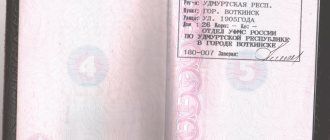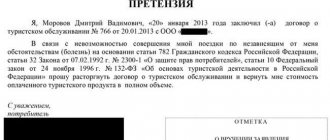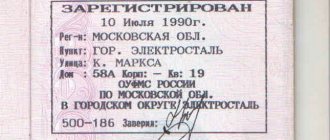The Constitutional Court (CC) of the Russian Federation obliged medical institutions to provide relatives of the deceased with information about the progress of treatment. This happened thanks to the struggle of Rimma Svechnikova from the Kirov region, whose husband died of cancer in 2021. The widow decided that the cause of death was improper treatment and asked the hospital management to give her her husband’s medical documents. She was refused, citing medical confidentiality.
about how they managed to achieve a legal precedent and what to do if doctors do not give the medical history to relatives after death.
Photo: Kirill Kukhmar/TASS
Legislative regulation
A survey of medical workers showed that the reason for refusal to issue outpatient documents is the frequent loss of cards by patients themselves. This leads to the loss of all essential information about a person, his chronic diseases, allergies to medications and the characteristics of the body. In order to prevent the loss of cards, a rule has been established not to issue documents to individuals. But is it legal?
You need to refer to the articles of the Federal Law of November 21, 2011 No. 323 “On the Fundamentals of Health Protection”. The articles of the document indicate that the patient has the right, by filling out a written, handwritten application, to receive at the hospital:
- outpatient card;
- card extracts;
- copies of medical documents.
His legal representative or guardian can also contact a medical institution on behalf of the patient.
The legislation clearly answers the question of whether an individual can request his or her medical record. Most often in practice, citizens have to deal with the following reasons for refusal:
- non-disclosure of medical confidentiality (there is indeed such a clause, but it concerns the inability to obtain another person’s card, and information about one’s health is a constitutional human right);
- violation of hospital rules (even with a written order not to issue outpatient documents, the law is higher)
Refusal to hand over a medical card to a patient is a direct violation of the law.
Sometimes a patient wants to receive his medical card from the clinic. The desire is understandable and even quite legitimate - everyone has the right not only to health care, but also to receive information about the state of their health. However, in practice, patients often have problems obtaining a medical card - the receptionist refuses to issue it, sending patients to read the law.
In fact, misunderstandings between patients and health care providers on this issue often arise from ignorance or misinterpretation of the law.
Let's figure out who has what rights and responsibilities
if the patient wishes to receive his medical card in his hands. This also applies to cases where the child’s parent wants to receive a medical card.
In accordance with Part 5 of Art. 22 of the Law of November 21, 2011 No. 323-FZ “On the fundamentals of protecting the health of citizens in the Russian Federation”, the patient or his legal representative has the right, on the basis of a written application, to receive medical documents reflecting the state of health, their copies and extracts from medical documents.
- Child’s medical record – how will it affect the amount of child support?
As can be seen from the text of this paragraph of the law, the patient has the right not only to receive a copy or extract from a medical document, but also the medical documents themselves. This means that all the arguments of the clinic employees (doctors, nurses, receptionists and others) that this law allows patients to rely only on receiving a copy of the medical record or an extract from it are null and void. And none of the arguments of medical workers about the inadmissibility of disclosing medical confidentiality, and what is even more stupid - that the medical institution is supposedly the owner of the medical card, cannot be considered legal and justifying their illegal refusal to issue documents to patients.
This clause of the law clearly gives the patient the right to receive medical documents, which include a medical record. The law does not establish any restrictions or conditions for the exercise of this right. Therefore, even if some letters, instructions and other documents are issued at the departmental level that restrict the right of patients to receive original medical documents, all of them are illegal.
What should a patient do if he wants to officially receive a medical card from the clinic?
The patient must contact the medical institution in writing. Moreover, it is important to write two copies of such an application - one is given to the doctor or receptionist, and on the second copy the recipient of such an application must put a mark of receipt indicating the date, time, signature and transcript of the signature. Moreover, patients can be advised to check whether their application is recorded in the medical institution's incoming correspondence log.
Only such an official statement can guarantee the safety of the nerves and time of the patient who wants to receive a medical card in his hands in cases of inadequately disposed medical workers.
Unfortunately, there is a lot of information on the Internet that patients are denied a medical card, some even use cunning to “get” their medical cards, and this information is followed by many comments and stories with conclusions that this is how it should be , because the medical card is supposedly the property of the medical institution.
But in reality there is no question of whose property the medical record is. The question is about the implementation of the rights of citizens established by federal law, and not some internal instructions convenient for doctors.
It is worth noting that in most cases a copy of the medical record
or extracts from it.
For example, this may be necessary when the card is needed for consultation with a specialist in another medical institution. But, as practice shows, patients often find notes in their medical records, including those about doctor’s appointments that did not happen; moreover, medical records sometimes get lost within the walls of a medical institution, or sheets that are important for the patient “miraculously” disappear from them. All these violations contribute to the increasingly frequent desire of patients to keep their medical records and the medical records of their children at home, and, if necessary, provide them to doctors.
Therefore, it is worth knowing and understanding that this is a patient right
, and there is not a single law prohibiting them from receiving original medical documents in their hands.
Regarding copies of medical documents (including medical records), it is important to note that in order for these to be not just copies, but documents, they must be properly certified
medical institution.
This means that all sheets of copies of medical documents must be numbered and stitched into a single block. Ideally, each page of such a copy should have the seal of the organization and the date of certification of the copy and the signature of an authorized person. The bound copy of the medical record is also certified on the bound spine with the seal and signature of an authorized person, his full name, the date of certification of the copy, and the total number of sheets are indicated.
The child's legal representatives - parents, adoptive parents, guardians and trustees - have the right to receive a medical card and other documents of the child. It is clear that in order to prove that a child’s medical card is not requested by a stranger, it is necessary to present documents confirming that the applicant is the legal representative of the child. So for parents, a passport with a mark about the registered child is quite enough.
Considering the above, it can be argued that the refusal to hand over a medical card to the patient or his legal representative is a direct violation of the law. This means that such a refusal can be appealed in court, a complaint can be filed with the health authority of the constituent entity of the Russian Federation (regional Ministry of Health), as well as with the prosecutor’s office.
And lastly: within what period should medical documents or their copies, extracts be submitted at the request of the patient or his legal representative?
Taking into account the general procedure for considering citizens’ appeals, we can talk about a 30-day period. But in general, the law does not establish a specific period in this case, and therefore the documents must be provided within a reasonable time. 3 days in such cases can be considered more than sufficient time to satisfy the patient’s legitimate request. But there are also exceptional cases, when medical documents are urgently needed to provide emergency or emergency medical care. Moreover, the patient generally has the right to indicate in his application a specific period within which he needs these documents. And then they are obliged to issue documents to him exactly within this period.
And even if there is a need to immediately receive a medical card, and this is indicated in the patient’s application with justification for the need - incl. for an urgent visit to a doctor in another clinic, then there are simply no legal grounds for refusing such a patient.
More precisely, it is possible to refuse only if the medical record is not physically available in the medical institution due to its earlier demand by law enforcement agencies, an insurance medical organization, a compulsory health insurance fund or another body that has the right to make official requests for the issuance of original medical documentation.
By the way, in 2021, the Prosecutor’s Office of the Perm Territory sent documents to the court to bring the chief physician to administrative responsibility for refusing to provide copies of documents from the medical record.
New information for 2021:
In Russia, the number of leaks of patient medical data has increased.
In this regard, the concerns of patients who want to store their medical records at home are understandable.
If you have a problem in receiving your documents from a medical institution and you need help in drawing up an application for receiving your medical card or a copy of it from the clinic, please report this by email
author: Elena Mogilevskaya
Procedure for obtaining medical documents
As noted above, cards are provided only on the basis of a written and handwritten application from the patient himself. Moreover, it is necessary to prepare two copies of the application. One original is given to the hospital, and on the second the recipient of the request puts a mark with the date of its receipt and a personal signature.
Next, the request is registered in the incoming documentation log and transferred to the registry to prepare a response to the request. The patient will not receive a written official response, but his request will be in the registry and, if necessary, a person will be able to obtain an outpatient card by visiting the hospital registry and taking documents.
Copies
As practice shows, a photocopy of an outpatient card or a certificate with certain information is often enough for a person. It will be much easier to obtain such data. It is enough to prepare a written request and submit it to the secretary of the hospital's chief physician.
It will take more time to prepare an answer, but this way you can get certificates from specialized doctors. For example, a surgeon, ophthalmologist, narcologist or psychiatrist.
When receiving copies of outpatient card sheets, the patient must ensure that all pages are certified to confirm the authenticity of the documents.
Application procedure
The law does not provide for a single form of application, so you can write an application in free form. It is enough to display the following categories of information in the request:
- name of the hospital where the request is being submitted;
- personal data of the applicant (full name, residential address, year of birth), which is necessary for his identification among other patients;
- series and passport number confirming that this is a specific citizen;
- requirement to provide a card for temporary use;
- purpose of receiving the card;
- date and signature.
Additionally, it must be indicated that the patient guarantees the safety of the documents and undertakes to return them after their intended use.
Who else can get a copy of my card?
Legal representative. In the informed voluntary consent for types of medical interventions, which the patient fills out, there is a paragraph where information is entered about the people he has chosen (usually relatives), to whom, in accordance with the law, information about his state of health can be transferred. Here a person can indicate legal representatives, but we have very few such cases. People are afraid to trust anyone with their data.
The legal representative will receive the requested information within seven days. He will need to write the same application and have a passport with him.
Ways to protect violated interests
Depending on who committed the violation of the law, a citizen has the opportunity to protect his interests in the following ways:
- Appeal to hospital management. This is possible when the receptionist categorically refuses to issue documents to the patient, citing illegal reasons or without any explanation at all.
- Appeal to higher management (for example, to a regional hospital if a regional institution violates the law). In his complaint, the person indicates in detail the circumstances of his application for the card, as well as the reasons for the refusal to consider the application. Additionally, there is an online reception desk on the website of the Ministry of Health, where you can leave a complaint remotely. The person will be notified by email of the consequences of its consideration.
- The prosecutor's office is a body designed to protect the rights and interests of the population. The prosecutor can conduct a targeted audit in order to establish/refute the legality of the actions of officials.
- A court that hears civil claims.
It is better to follow the designated hierarchy. Unfortunately, this will take more time. But this way a person can save money and avoid lengthy legal delays.
Liability under the Criminal Code of the Russian Federation
In accordance with Art. 140 of the Criminal Code of the Russian Federation, the unlawful refusal of an official to provide documents and materials affecting the rights and freedoms of a citizen, or the provision of incomplete or knowingly false information to a citizen, if these actions caused harm to the rights and legitimate interests of citizens, is punishable by a fine of up to two hundred thousand rubles or in the amount wages or other income of the convicted person for a period of up to eighteen months, or deprivation of the right to hold certain positions or engage in certain activities for a period of two to five years.
Arbitrage practice
There is an example in judicial practice when, in 2021, the prosecutor of Perm brought administrative liability to the head physician of a hospital for refusing to provide an outpatient card to a lawyer’s request. A person who needed documents turned to a lawyer for help. But he was denied the papers. After filing a complaint with the Regional Prosecutor's Office, an administrative violation protocol was drawn up.
Of course, this is an isolated case. But, as practice shows, if the applicant knows how to operate with the articles of the law and knows that he is guaranteed the right to receive a medical card in his hands, then he will be able to achieve his goal without the participation of third parties.
Where to complain
The loss of a medical card is an extremely unpleasant incident, given the high importance of the information it contains. Thus, this prevents compliance with the principle of continuity of data to improve the quality of medical care, does not allow specialists to make an accurate diagnosis taking into account previous examinations, etc.
A refusal to issue an extract from an outpatient card can be appealed, including through the governing body of a constituent entity of the Russian Federation or in court at the patient’s place of residence or at the location of the medical institution. This right is guaranteed by Art. 89 of the Law of 2011 No. 323-FZ.
In court, you can demand compensation for moral damage caused from a medical institution, as well as demand compensation for losses: for example, the cost of travel for repeated tests, the cost of undergoing examinations, the cost of renting premises for examinations, etc.









